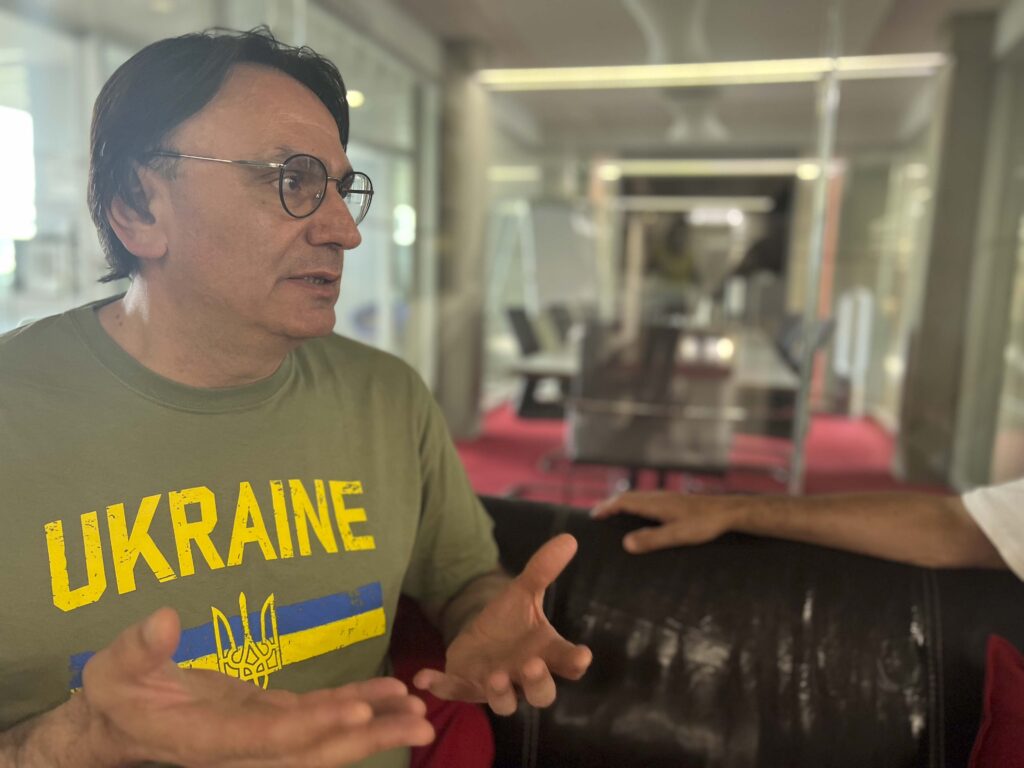20 July, 2023IndustriALL assistant general secretary Kemal Özkan shares why it is crucial to highlight and discuss workers’ situation and violations of their rights in Ukraine.
Why is the issue of protecting workers’ rights in Ukraine important to discuss now, in the middle of the war?
“It is important because workers suffer from the war, occupation, and aggression. Workers lose their jobs and their incomes, workers and their families need to flee, both internally and externally, but workers also have to defend and save their country. We all expect workers’ rights to be respected, that their unions are supported and given opportunity to serve their members. But the reality is very different.
“At a time when the country needs unity it shouldn’t be a priority for policy makers to change labour laws against the interest of workers while they fight for the sovereignty, integrity, democracy and prosperity of their country. This is, to say the least, extremely disappointing and frustrating.
“When we talk about workers’ rights, we need to look at two areas. One is the temporarily and unlawfully occupied areas where there are serious violations. We receive terrible reports from the ground about killings, torture, arbitrary detentions, forced work and forced deportation. The other one are the recent changes on almost all labour-related to laws, including individual and collective labour legislation, resulting in a huge regression.”
How do workers manage to continue given the war?
“They are courageously working. Imagine a mine worker going underground while bombs are falling. Energy workers try to provide electricity for people to ensure that daily life continues or try to repair damaged energy systems, putting their own lives at risk. They even do it without any or less payment, and without any protection.
“If there is still an economy in the country, it is thanks to the workers in industry, agriculture and services. They deserve much better than what they have today. They must be treated much better. Their rights must be improved instead of curtailed.
“Our main job as an international trade union is to support them – we must be their voice. Their government and the international community must understand the reality of workers. This is why we keep fighting outside and inside the country.”
For some workers, in nuclear plants for example, the health and safety situation is appalling. Can’t those workers simply refuse to work, as is their right?
“Workers are exposed to higher risks of missile attacks and landmines than the general population. They are forced to work in unsafe and unhealthy situations where the physical infrastructure and the workspace re damaged, health and safety management systems are not operational, and normal safety procedures are not followed.
“For nuclear workers, there is a high radiation exposure risk. It is reported that workers are denied information about health and safety risks because of changes in the working environment and the invasion. It is very difficult to get information from those workplaces, therefore we don’t know if workers have opportunity to remove themselves from imminent danger and potentially unsafe situations at work.
“We are very concerned with the fact that workers are not provided personal protective equipment of the same quality as before. Every worker must have a right to a safe and healthy work environment. Refuse to work in unsafe conditions is a fundamental right. However, under the circumstances workers are forced to do many things without consent. This is the ground reality which needs to be exposed and fixed.”
How have the labour laws changed in Ukraine and how will the changes impact workers?
“Immediately after the outbreak of the war, in March 2022, the Ukrainian Parliament enacted the Law on the Organization of Labour Relations Under Martial Law. This has immensely restricted individual and collective workers’ rights.
“In addition, the Parliament enacted a series of laws in 2022 which resulted in a massive setback for labour rights, in fact constituting a threat to fundamental labour relations, and in broader term to social dialogue. The latter is badly needed in the country at this very difficult time.
“This is a continuation of the so-called reform for liberalization of labour and deregulation of industrial relations in Ukraine. It is unfortunate that instead of improving the current Labour Code, Ukrainian policy makers change labour laws, removing almost all rights gained by workers.
“In consequence, there is no protection for workers. This is the Ukrainian version of a race to the bottom for workers, in line with the prescriptions of international finance institutions. But this is the wrong way.”
Why is it important to highlight violations of workers’ rights during a war?
“It is important because it is the raison d’etre our movement. In every circumstance, defending workers’ rights is our primary responsibility.
“It is important because in a war, workers’ voices, particularly in the occupied areas, are not heard. We, the international unions, have to be the voice of voiceless. Intergovernmental agencies must know the reality of workers in order to take necessary action. This is why we issue sector briefs with the ILO, for example.
“It is important because what has been done and is being done must be taken recorded for accountability and responsibility. The international community cannot let anyone get away with it. In the world of labour, it is our responsibility to do bring it to light.”


